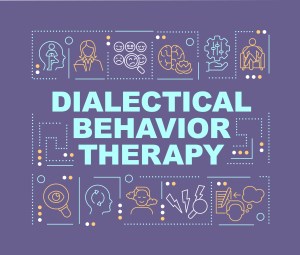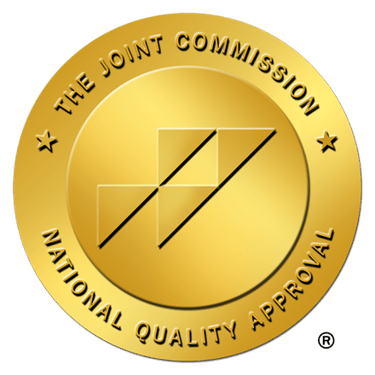CALL FOR HELP NOW (818) 456-4185
Theres a Modality for That
What Modalities are for Each Mental Health Disorder
Richard Melton
7/24/20253 min read


Cognitive Behavioral Therapy (CBT)
Description: CBT focuses on identifying and changing negative thought patterns and behaviors [1][2]. It's based on the idea that thoughts, feelings, and behaviors are interconnected [3].
Blogs about CBT:
The CBT/DBT Center Blog [4]
Psychology Today (Cognitive Behavioral Therapy) [2]
Blogs about anxiety, depression, OCD treated with CBT:
Anxiety: From Surviving to Thriving | Blog | RISE | TTU [5]
The Official Blog Of The Depression Project! [6]
Blog Posts from Our OCD Experts - Sheppard Pratt [7]
Dialectical Behavior Therapy (DBT)
Description: DBT is often used for individuals with intense emotions or self-harming behaviors and is designed to manage emotional regulation and improve relationships [2][8]. It was originally developed for borderline personality disorder [2].
Blogs about DBT:
The DBT Blog - DBT Calgary | Dialectical Behaviour Therapy - Inner Solutions [8]
DBT Self Help Blog [4]
The DBT Blog [9]
Blogs about borderline personality disorder treated with DBT:
Borderline in the ACT [10]
What I Wish I Had Known About Borderline Personality Disorder | NAMI [11]
Acceptance and Commitment Therapy (ACT)
Description: ACT uses acceptance and mindfulness techniques to manage difficult thoughts and feelings [12].
Finding Blogs: A direct search for "blogs about Acceptance and Commitment Therapy" will help you locate relevant resources.
While specific blogs dedicated solely to ACT may be less common, many psychology and therapy blogs discuss ACT principles and techniques.
Look for blogs that discuss mindfulness, values-based living, and psychological flexibility, as these are core components of ACT.
Group Therapy
Description: Group therapy involves a group of people meeting with a trained therapist to discuss a common issue [13].
Blogs about Group Therapy:
Search for blogs on "support groups" or "peer support groups" in relation to specific mental health conditions [14].
Example: For ADHD, search "ADHD peer support groups blog" [14].
Family Therapy
Description: Family therapy addresses the behaviors of multiple people and the relationships between them, improving communication and resolving conflicts [13][15].
Blogs about Family Therapy:
Family Therapy Basics [16]
Marriage and Family Therapy Blog by Chris Massman [17]
Everything You Need to Know About Family Therapy | Blog | Wake Forest, NC 27587 [15]
Nutritional Counseling
Description: Nutritional counseling addresses the connection between diet and mental health, promoting overall well-being.
Finding Blogs: Search for blogs on "nutritional psychiatry" or "diet and mental health."
Look for articles and blogs written by registered dietitians or nutritionists specializing in mental health.
Trauma-Focused Therapies
Description: These therapies are designed to address the impact of traumatic experiences, often using techniques like Cognitive Processing Therapy or Eye Movement Desensitization and Reprocessing (EMDR) [18].
Blogs about PTSD:
Trauma! A PTSD Blog - HealthyPlace [19]
PTSD Blog | Serenity Mental Health Centers [20]
Trauma Blog | International Society for Traumatic Stress Studies [21]
II. Mental Health Disorders
Anxiety
Description: Characterized by feelings of worry, nervousness, or unease [5].
Blogs about Anxiety:
Anxiety Blog - Anxieties.com - Your Self-Help Resource Center [22]
The Brightside Blog - Learn About Depression and Anxiety [23]
Me, myself, and anxiety - Cranfield University Blogs [24]
Depression
Description: A mood disorder that causes a persistent feeling of sadness and loss of interest [25][26].
Blogs about Depression:
Best Depression Blogs of 2021 - Healthline [25]
The Brightside Blog - Learn About Depression and Anxiety [23]
The Official Blog Of The Depression Project! [6]
Obsessive-Compulsive Disorder (OCD)
Description: Characterized by uncontrollable, recurring thoughts (obsessions) and/or behaviors (compulsions) [24][27].
Blogs about OCD:
Blog Posts from Our OCD Experts - Sheppard Pratt [7]
Living with OCD [12]
Blogs | OCD-UK [28]
Attention-Deficit/Hyperactivity Disorder (ADHD)
Description: A neurological condition causing symptoms of inattentiveness, hyperactivity, and impulsiveness [14].
Blogs about ADHD:
ADHD Blog | Insights & Resources - The ADHD Centre [14]
ADHD Blog - The Mini ADHD Coach [31]
Bipolar Disorder
Description: A mental illness that causes unusual shifts in mood, energy, activity levels, concentration, and the ability to carry out day-to-day tasks [32].
Blogs about Bipolar Disorder:
bpHope Blog: Dedicated to Living Well with Bipolar Disorder [33]
Bipolar UK [32]
My Big Fat Bipolar Life [34]
Borderline Personality Disorder (BPD)
Description: A mental health disorder that impacts the way you think and feel about yourself and others, causing problems in self-image, difficulty managing emotions and behavior, and a pattern of unstable relationships [35][36].
Blogs about BPD:
Best Borderline Personality Disorder (BPD) Blogs - Choosing Therapy [36]
Borderline in the ACT [10]
Living with borderline personality disorder - Rachel's story - Rethink Mental Illness [35]
Post-Traumatic Stress Disorder (PTSD) & Trauma
Description: A mental health condition that's triggered by a terrifying event — either experiencing it or witnessing it [20][37].
Blogs about PTSD:
PTSD Blog | Serenity Mental Health Centers [20]
Trauma! A PTSD Blog - HealthyPlace [19]
Trauma Blog | International Society for Traumatic Stress Studies [21]
Important Considerations:
Professional Advice: Always consult with qualified mental health professionals for diagnosis and treatment.
Blog Quality: Evaluate the credibility and expertise of blog authors.
Personalization: Treatment approaches should be tailored to individual needs.
© 2025. Arise Hillside Treatment Center. All rights reserved.

Our Approach
QUICK LINKS
Admissions
Social Rehabilitation License #195850422. | DHCS SRF MHBS24048

4800 Almidor Ave. Woodland Hills, CA 91364
CONTACT US




